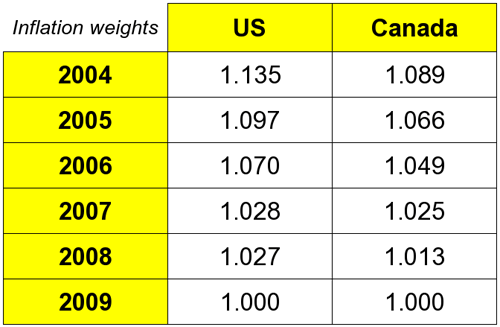Inflation is the loss of purchasing power over time for what is supposedly the same unit of money. That is $1 should buy the same good at a point in the future for the same $1. As we know, this is not the case, and has not been for decades. The reasons for inflation are discussed among economists always, and there are not enough barstools for all of the academic chatter. Let's just say that there is a mismatch between the amount of money circulating and the amount of goods and services available for purchase. The old phrase “too much money chasing too few goods” should suffice for our purposes here.
What inflation does to business decision-making is more nefarious. It leads to bad business decisions, especially when comparing past to current performance. If business levels look flat over a period of years when reported in dollars, it probably means that business has actually been declining. This is one reason to find as many ways as practical to find measures of business reporting that are in units, and track them over time.
Most business reporting is in dollars, and it is relatively easy to make the calculations using Microsoft Excel or another spreadsheet program. Just multiple the data for each year by the weighting factor in the table below. These weights are based on the U.S. Consumer Price Index as published by the Bureau of Labor Statistics, and the equivalent index from Statistics Canada. The data are based on the CPI indices for December 2009.

As I often mention when discussing these... the first time you look at your financials in this way, it might be a good idea to have a bottle and a glass nearby. If we do end up in an inflationary environment in the coming years, you will be much better prepared than others who do not make the effort to go through this exercise.
Other Resources:
There was a superb article in the Wall Street Journal recently about inflation and judging stock market performance, and how savings and fund performance are distorted by not taking it into account. “Controlling for inflation takes extra work and makes stock gains look punier, so it is easy to see why stock analysts almost never do it. The media almost never do it either.”
More background on business inflation accounting can be found at Wikipedia.









